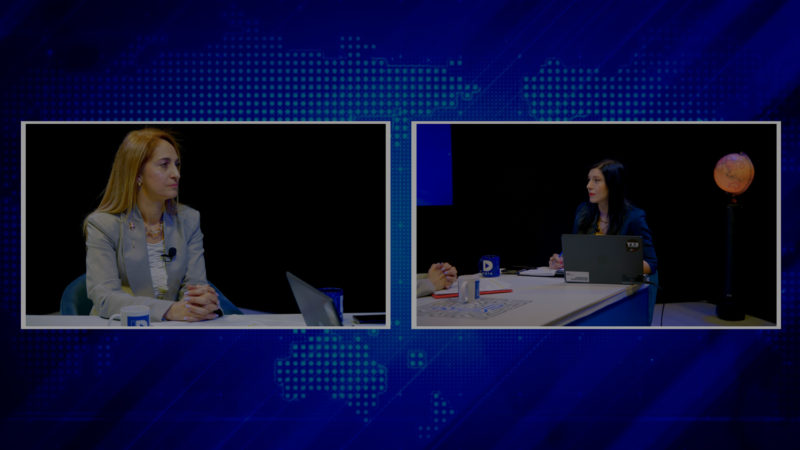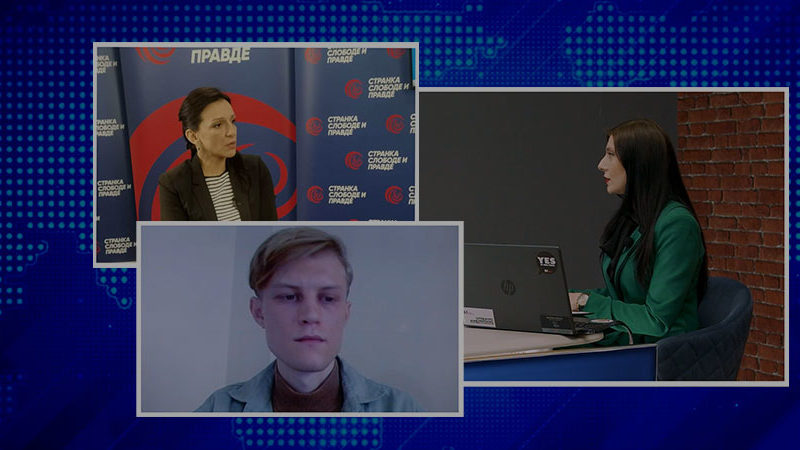Ambassador Djukic with positive forecasts for the Balkan countries - Sekulovski from ZNM urges not to hinder the work of journalists in the upcoming elections.
The former Ambassador of Serbia to Belarus and a diplomat with vast experience in diplomatic missions in Moscow, Prishtina and Sofia, Dr. Srecko Djukic is a guest in this Labyrinth. We analyzed the arrival of Chinese President Xi Jinping in Belgrade and Paris, but we also analyzed the current war hotspots in Ukraine and Gaza, as well as relations in the Balkans.
Diplomat Djukic expects an escalation on the front in Ukraine which will be an indicator of the direction the war will go and says that Russia receives more help from its allies than Ukraine receives from its friends in the West.
Regarding the dialogue between Belgrade and Prishtina, the diplomat believes that the future Special Envoy of the EU for this dialogue, who will most likely be the former President of Slovenia, Borut Pahor, will in practice achieve what the previous Envoy Miroslav Lajčak did, which is the completion of the formal framework with the Brussels Agreement and the Ohrid Annex.
As for EU expansion, Djukic says that the Union has finally realized that the membership of the Balkan states, as well as Ukraine and Moldova, is their security strategic goal and expects this to be achieved in the next mandate.
A guest in this edition of Labyrinth is the director of ZNM, Dragan Sekulovski, with whom we discussed the safety of journalists, online attacks on them, and the rights of journalists to report from polling stations. Sekulovski reminded that these are the first elections in the country where journalists have the capacity of officials.
You Might also like
-
Kalach: It is unlikely that Netanyahu will be arrested
Legal analysis of the decision of the International Criminal Court and the proceedings in front of the Macedonian courts.
The International Criminal Court has issued an arrest warrant for Israeli Prime Minister Benjamin Netanyahu, his defense minister and three Hamas leaders. What this means, who would arrest Netanyahu, and where he is safe from criminal prosecution, we talk to lawyer Yasmin Kalach. Kalach does not believe that the Israeli prime minister would travel to countries that are signatories to the Rome Statute to avoid being detained. Israel's argument that this decision equates both sides is untenable, the lawyer believes, and says that the court made such a decision because it is not selective. Meanwhile, Spain, Ireland and Norway have recognized the Palestinian state.
We also discussed the two legal processes currently underway in Macedonia: the detention of Supreme Judge Georgiev for taking a bribe, as well as the extradition of the double murder suspect Palco and the start of his trial. Watch the full analysis.
Post Views: 1,675 -
As long as there are quotas and the need for special laws, we do not have gender equality
Women in the private security sector
In the first March edition of Labyrinth, we talk about women in the private security sector with the Secretary General of the Chamber of Private Security, Sanja Kermetchieva. Similar to the state, in the private security sector only 10% of the employees are women. As long as we talk about quotas, as long as we count how many women are in certain positions, regardless of whether it is in the highest state positions, whether it is a position of women managers, whether they are in rectors, in dean's administrations and so on, in any which position or in specific jobs in security, how many women are police officers, how many in private security, how many are soldiers...
Until then and while we are talking about this and while there is a need for special conventions, special laws and policies in companies, we are facing with gender inequality.Post Views: 2,053 -
Elections or just a voting process?
Српската опозиција бара помош од ЕУ, а Русите ја напуштаат државата за да се спасат од мобилизација.





